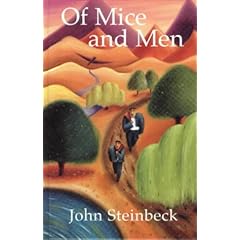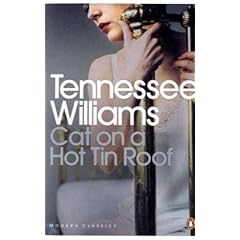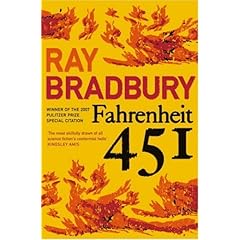Last month, California governor Arnold Schwarzenegger
announced that he planned to save money for the state by making more text books available online in order to help keep pupils more up to date. There are many obvious benefits to this beyond the fiscal; as well as saving students' backs and shoulders, perhaps the days of not having the right edition of a text book will be gone, as information will be able to be updated automatically with greater ease (I'm sure we all remember lamenting the fact of school text books being out of date; indeed, even in the €18k per year per child school in which I teach, I still teach using text books from 2001).
It is at this point still unclear as to how this will work. Will it be something akin to the Gutenberg project or JSTOR, to which schools can subscribe in order to open up a wider variety of texts to their students? Or will schools subscribe on a text-by-text basis rather than to a database? (I think, sadly, that any idea of it being free is perhaps a pipe dream; the only reason why something like Gutenberg is available for free is due to the texts available being out of copyright, which text books will not be.) But regardless of how it will work, one needs to ask what such increasing digitisation means for the modern reader.
As someone who was still at university until quite recently, the benefits are manifold and ostensible. Alongside all of the reasons mentioned above, if the idea of making texts available to students through a wider database comes off (as opposed to schools choosing which individual texts they want to be made available to their students), then the days of having to pay for vital texts to be sent from other libraries may be over. As I mentioned
here in June, I had to purchase a book that I wanted to help with my dissertation all the way from an American library that was clearing out its stock, because my university library didn't have it, and it would have cost the same amount of money, if not more, for it to be borrowed from another library and transported to the depths of the British West Country. Making such texts available on a database would mean that time and money could be saved for students worldwide. I was lucky enough after Exeter University to then attend Oxford University, which is home to the Bodleian library.

As a legal deposit library, every book published in the UK is by law deposited there, so even if on occasion you had to wait a few days for a book to be transported from a mine in Sussex, you could be assured that you would get whatever it was you wanted eventually. Why shouldn't all students have a similar privilege in digital form?
So it is perhaps fairly clear, then, that going digital would benefit school and university students enormously, as well as the schools and universities themselves (this would also allow them to save on space, and to further protect valuable documents, which can be damaged by sunlight, fire or even by oils that occur naturally in human skin, as well as being susceptible to theft and accidental damage). As a teacher, I can also speak of my dismay at the capacity that some of these kids have to completely wreck a brand new book in the course of a few months; with digitisation, this possibility is also avoided (though with the new risk of susceptibility to hackers and crashes, I would also imagine that quite high backups and security would be required for such an online database). E-books can also have text highlighted and underlined to help the student with no damage, and text can be easily enlarged or differently coloured to help students with dyslexia or colour blindness. But that's the world of education - what of the ordinary reader? Where does digitisation leave them?
E-book readers are becoming increasingly popular; as well as the arguably most famous

Amazon Kindle, there is also the Sony Reader, the eSlick, and the Samsung Papyrus. Additionally, as mobile phones become more sophisticated, applications for devices such as the iPhone can be downloaded to the handset that allow you to read books on the go. Newspapers are also highly digitised, with many if not all allowing you to read the paper completely online, whether this is for free or by way of a subscription. All of this together means that doomsaying rumours have been doing the rounds for some time, speculating about the future of good old-fashioned books and newspapers, and yet bookstores and libraries still exist, as do paper newspapers.
Even though I spent a good while earlier extolling the virtues of going digital for research purposes, I do believe that any rumour of the average book-reader having to resort completely to staring at a screen is unfounded. Why? Because humans are very physical beings, for a start: we like things to be tactile, and many book-lovers continue to report on the sensory experience of reading an actual book, whether it's the feel of the weight or shape in your hands, or whether it's the smell of the pages. Reading from a screen is also more tiring and damaging to the eyes than reading from a page, and going completely digital won't even assuage people's environmental concerns: while masses of paper would be saved, the resulting electricity that would need to be used to power e-book readers and computers, as well as the landfill that would result from when these things are thrown away to make way for newer models, would surely counteract any saving made when it comes to trees.

This is all without mentioning the aesthetic, and, more importantly, social aspects of possessing and sharing books. Nobody can deny that the sight of well-stocked bookshelves in a home adds character, whether the books are shiny and leather-bound or worn and battered; equally, would a book club be the same with some gadget freak piping up "oh, there's that bit on page 73 where...I'll just pull it up for you all on my Kindle", rather than pulling out the book in question and flipping through to find the right bit? The library is a social place too, remember. And let's not forget that people already spend enough time in front of a screen as it is, whether it's due to computer games, TV, chatting on MSN, or...blogging. Hmm. Do you think that's a hint to myself to get off this machine and go and finish my current read? I think so too.















